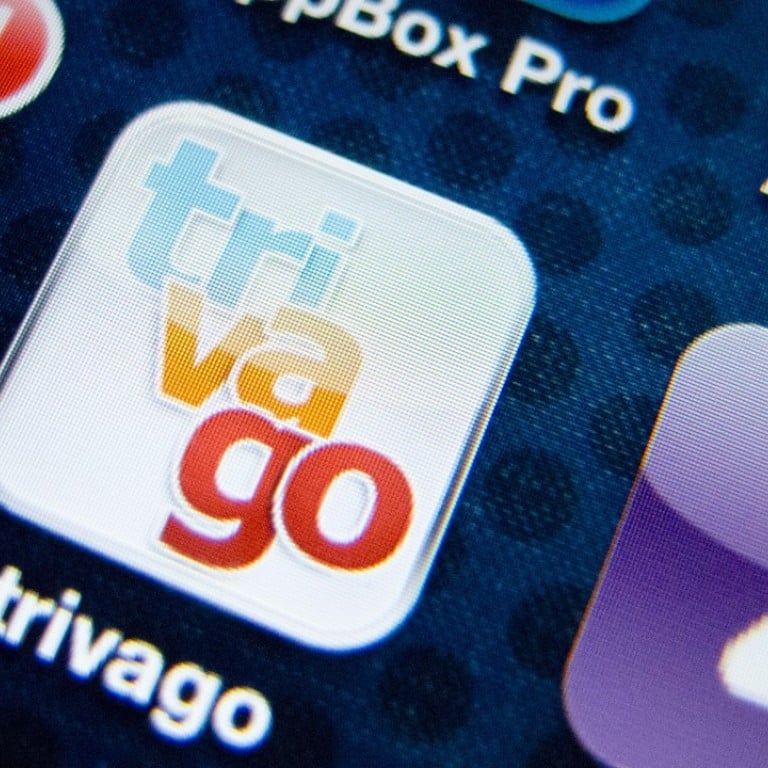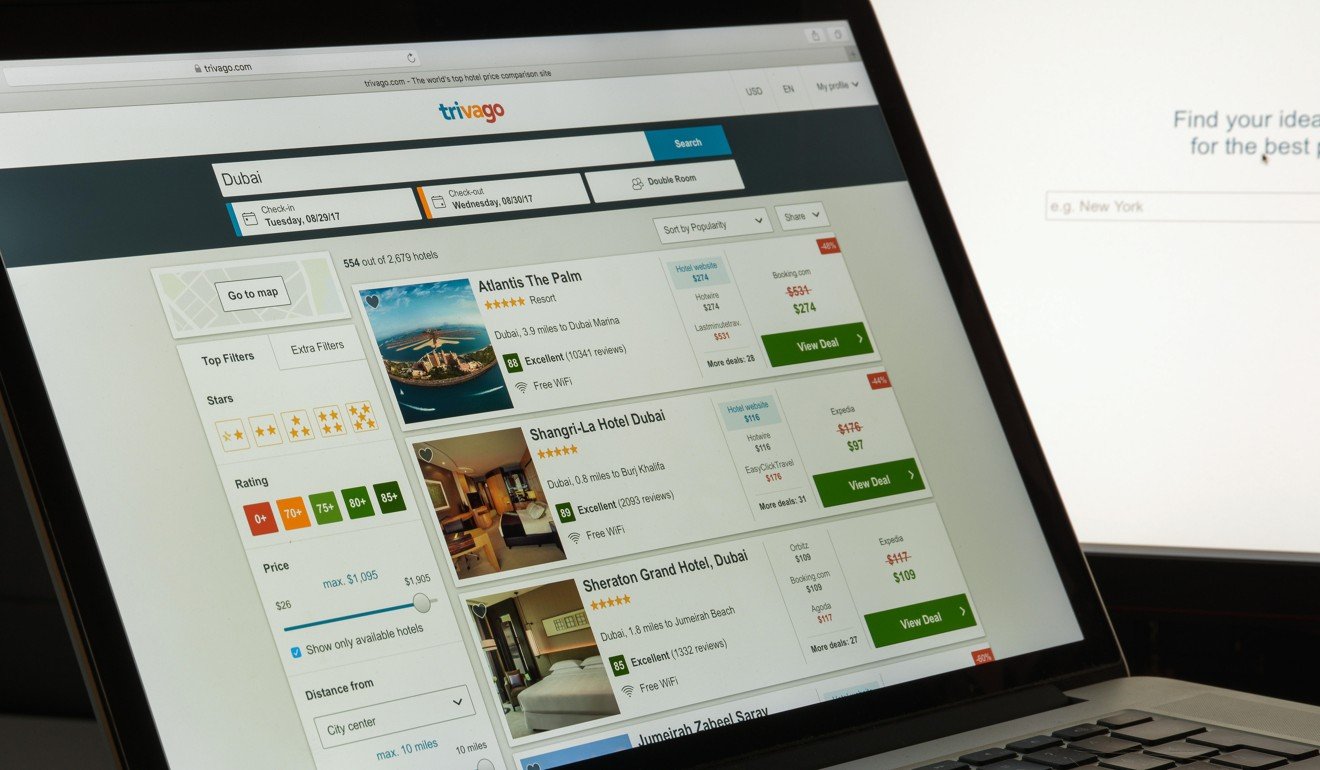
Hong Kong customs monitoring travel website Trivago accused by Australian watchdog of misleading ads
- German company claims to compare hotel prices across sites and show cheapest rates, but top search results are based on advertising fee
- Report shows it admitted to leading customers into ‘erroneous belief’
Hong Kong customs is looking into a case by the Australian consumer watchdog against travel website Trivago, accused of misleading users into thinking its search results generated hotel listings with the best prices.
The German company, which regularly runs TV commercials in Hong Kong, was reported on Sunday to have admitted in court documents that it led consumers to “form an erroneous belief” about data. It said top offers listed on its search page were actually based on the amount of advertising fee received from hotels, and not those with the lowest prices.
In Trivago advertisements on TV, which have been broadcast in Australia since December 2013, the site aggregator claims to present the best prices for hotel rooms after comparing them across various platforms. Users then click on recommended booking agents to start their transactions.

Prices on Trivago are listed in red and green, with the red figure struck out, indicating the original, more expensive rate discounted for a cheaper amount in green.
In a December 2 report by British newspaper The Daily Telegraph, the company also admitted to misleading customers by comparing premium and luxury room rates – resulting in the belief that the higher, red strike-through prices were original costs in the same room category.
In August, the Australian Competition and Consumer Commission lodged a case against Trivago for falsely claiming that its advertised hotel deals were the lowest rates. The case will head to Australia’s federal court later this month and Trivago faces millions in fines over misleading advertising.
Estate agents’ watchdog working on guidelines to eliminate fake online listings
With the website’s services available also to Hongkongers, a spokesman for the city’s Customs and Excise Department said it was monitoring the situation and would follow up on the case.
Jason Wong Chun-tat, chairman of the Travel Industry Council of Hong Kong, warned on a radio programme on Wednesday morning that it would be almost impossible to compare prices of an “exact same room” as stated in a Trivago TV ad, which runs in both English and Cantonese.
“It remains unclear if the advertiser is saying that it compares the prices of same room types across different websites, or for one specific room, and it would be quite impossible to achieve the latter,” Wong said.
“For sites like Trivago, they would get a commission of a few per cent – not more than 5 – on average each time someone is directed to a referral site,” he added without elaborating what this proportion was part of.
They would get a commission ... each time someone is directed to a referral site
Wong also revealed that aggregators like Trivago were paid a cost-per-click fee by booking websites each time a user clicks on an offer. He reminded the public to be cautious and keep in mind that Trivago is a price comparison service and not a hotel booking agent.
The Post contacted Trivago but it did not respond by press time.
Meanwhile, the city’s Consumer Council expressed concern over the matter, warning shoppers not to completely believe claims of websites offering price comparisons. It advised users to go to the official websites of hotels or other sales platforms to clarify details.
“Merchants should not mislead consumers – if their marketing material is different from services delivered, there is a high risk of breaching the Trade Descriptions Ordinance,” a council spokeswoman said.
In the first 11 months of the year, the number of complaints about online travel matters and accommodation jumped 3.3 per cent to 1,273 cases – the most in any online shopping category received by the watchdog. Such reports amounted to 28 per cent of total complaints lodged with the council in this time period.
Additional reporting by Denise Tsang

